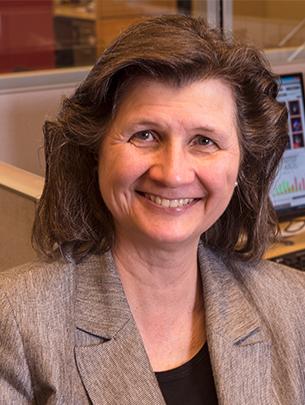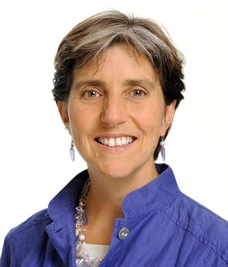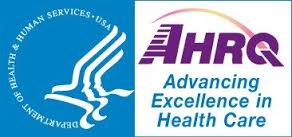 Many organizations have asked me to comment on the impact of the Trump Presidency on Healthcare and Healthcare IT. I served the Bush administration for 4 years and the Obama administration for 6 years. I know that change in Washington happens incrementally. There is always an evolution, not a revolution, regardless of speechmaking hyperbole. What am I doing in Massachusetts? I’m staying the course, continuing my focus on social networking for healthcare, mobile, care management analytics, cloud, and security while leaving the strategic plan/budget as is...
Many organizations have asked me to comment on the impact of the Trump Presidency on Healthcare and Healthcare IT. I served the Bush administration for 4 years and the Obama administration for 6 years. I know that change in Washington happens incrementally. There is always an evolution, not a revolution, regardless of speechmaking hyperbole. What am I doing in Massachusetts? I’m staying the course, continuing my focus on social networking for healthcare, mobile, care management analytics, cloud, and security while leaving the strategic plan/budget as is...
National Institutes of Health (NIH)
See the following -
Turning Mobile Devices Into Emergency Tools
 The strongest recorded storm to ever hit land slammed into the Philippines at 195 miles per hour just over a year ago, on 8 November 2013...One of the problems in the aftermath of Typhoon Haiyan was the failure of mobile phone networks. Many base stations were damaged or ran out of power, rendering the tools — which could otherwise have enabled separated families or health workers to communicate — powerless. But there are simple and affordable tweaks that handset manufacturers could introduce to make their products more resilient and useful in disasters, according to Wladimir Alonso, a global health researcher at the US National Institutes of Health...
The strongest recorded storm to ever hit land slammed into the Philippines at 195 miles per hour just over a year ago, on 8 November 2013...One of the problems in the aftermath of Typhoon Haiyan was the failure of mobile phone networks. Many base stations were damaged or ran out of power, rendering the tools — which could otherwise have enabled separated families or health workers to communicate — powerless. But there are simple and affordable tweaks that handset manufacturers could introduce to make their products more resilient and useful in disasters, according to Wladimir Alonso, a global health researcher at the US National Institutes of Health...
- Login to post comments
Tutorial 19b: Open Access Definitions And Clarifications, Part 2: Gold And Green
Last time, we looked at what the term “open access” actually means. We noted that its been widely abused, so that when you need to be specific about the full meaning you need to say “BOAI-compliant”; we recognised that much of what is described as OA is really only “gratis OA”, or as Ross Mounce called it, “gratis access”; and we noted that the term “libre open access” is literally meaningless and should be avoided. Read More »
- Login to post comments
U.S. Rep. Kevin Yoder Touts Bill That Would Make Research More Available During Kansas U Visit
If taxpayers help fund scholarly research, U.S. Rep. Kevin Yoder said Wednesday, then it ought to be free and available for anyone to see. Read More »
- Login to post comments
University of Chicago Awarded $20 Million To Host COVID-19 Medical Imaging Center
 A new center hosted at the University of Chicago-co-led by the largest medical imaging professional organizations in the country-will help tackle the ongoing COVID-19 pandemic by curating a massive database of medical images to help better understand and treat the disease. Led by Prof. Maryellen Giger of UChicago Medicine, the Medical Imaging and Data Resource Center (MIDRC) will create an open-source database with medical images from thousands of COVID-19 patients. The center will be funded by a two-year, $20 million contract from the National Institute of Biomedical Imaging and Bioengineering at the National Institutes of Health (NIH).
A new center hosted at the University of Chicago-co-led by the largest medical imaging professional organizations in the country-will help tackle the ongoing COVID-19 pandemic by curating a massive database of medical images to help better understand and treat the disease. Led by Prof. Maryellen Giger of UChicago Medicine, the Medical Imaging and Data Resource Center (MIDRC) will create an open-source database with medical images from thousands of COVID-19 patients. The center will be funded by a two-year, $20 million contract from the National Institute of Biomedical Imaging and Bioengineering at the National Institutes of Health (NIH).
- Login to post comments
US And UK Share Health Data Via Cloud
About half a century after epidemiology studies in Massachusetts and the United Kingdom helped build the world’s understanding of cardiovascular disease and health risks, public health and population data is being opened up by the U.S. and joining international datasets. Read More »
- Login to post comments
Using Crowdfunding To Start A Company With A Cause
Two sisters, Kara Gorski and Kristin Gembala, have developed a bra designed to help breast cancer survivors who have had mastectomies and reconstructive surgery. So far, the sisters, who invested $25,000 from their savings, have designed and patented two styles and built a Web site. Currently, they are trying to raise money to begin manufacturing through a new crowdfunding platform. Read More »
- Login to post comments
VA Explores Alternative Therapies
...The alternative-therapy programs mark a dramatic departure in the treatment offered to troops who are returning from the wars in Iraq and Afghanistan and seeking relief from pain. Among the options: Equine therapy. Alpha Stimulation. Qigong. Guided Imagery. Life coaching. Yoga and Pilates. Hypnosis. Aqua therapy. Botox...
- Login to post comments
VA Researchers Testing Cheaper Clinical Trials Using Tech
Clinicians across more than 30 VA medical centers are taking part in a $10 million randomized clinical trial meant to compare two common treatments for hypertension. These doctors will not, however, noticeably change how they treat their patients or how they collect data about them. In fact, after veterans are enrolled in the trial, they will be asked to continue managing their blood pressure using their regular doctors, unlike in the vast majority of clinical trials where new doctors treat patients and study staff oversee them...
- Login to post comments
Vibrent Health Joins Europe’s Open Source RADAR-CNS Program to Develop Scalable Analytics Platform for Health Wearables
 Health technology company Vibrent Health...expands its digital health solutions business into Europe through a partnership with Remote Assessment of Disease and Relapse – Central Nervous System (RADAR-CNS). Vibrent Health will work with the Europe-led consortium on developing digital health programs featuring predictive analytics designed to monitor and help improve treatment for depression, multiple sclerosis, and epilepsy. RADAR-CNS is conducting research using a range of medical-grade sensors, such as electro-cardiograms, as well as a growing portfolio of consumer-grade sensors, including accelerometers and smartphone applications, that collect participant data from surveys and smartphone sensors.
Health technology company Vibrent Health...expands its digital health solutions business into Europe through a partnership with Remote Assessment of Disease and Relapse – Central Nervous System (RADAR-CNS). Vibrent Health will work with the Europe-led consortium on developing digital health programs featuring predictive analytics designed to monitor and help improve treatment for depression, multiple sclerosis, and epilepsy. RADAR-CNS is conducting research using a range of medical-grade sensors, such as electro-cardiograms, as well as a growing portfolio of consumer-grade sensors, including accelerometers and smartphone applications, that collect participant data from surveys and smartphone sensors.
- Login to post comments
Wearable Sweat Sensor Can Diagnose Cystic Fibrosis, Study Finds
 A wristband-type wearable sweat sensor could transform diagnostics and drug evaluation for cystic fibrosis, diabetes and other diseases. The sensor collects sweat, measures its molecular constituents and then electronically transmits the results for analysis and diagnostics, according to a study led by researchers at the Stanford University School of Medicine, in collaboration with the University of California-Berkeley. Unlike old-fashioned sweat collectors, the new device does not require patients to sit still for a long time while sweat accumulates in the collectors...
A wristband-type wearable sweat sensor could transform diagnostics and drug evaluation for cystic fibrosis, diabetes and other diseases. The sensor collects sweat, measures its molecular constituents and then electronically transmits the results for analysis and diagnostics, according to a study led by researchers at the Stanford University School of Medicine, in collaboration with the University of California-Berkeley. Unlike old-fashioned sweat collectors, the new device does not require patients to sit still for a long time while sweat accumulates in the collectors...
- Login to post comments
What Does the Trump Presidency Imply for Healthcare and Healthcare IT?
- Login to post comments
What Ethical Issues Does the Precision Medicine Initiative Face?
 "This is the largest government study ever on its own people.” Nancy Kass, Sc.D., a professor of bioethics and public health at the Johns Hopkins Bloomberg School of Public Health in Baltimore, was talking about the Precision Medicine Initiative, now called the All of Us Research Program. Kass says she makes that bold statement deliberately and with humility, because she chairs the institutional review board (IRB) for the project, which aims to create a million-person cohort...
"This is the largest government study ever on its own people.” Nancy Kass, Sc.D., a professor of bioethics and public health at the Johns Hopkins Bloomberg School of Public Health in Baltimore, was talking about the Precision Medicine Initiative, now called the All of Us Research Program. Kass says she makes that bold statement deliberately and with humility, because she chairs the institutional review board (IRB) for the project, which aims to create a million-person cohort...
- Login to post comments
What Would Keep Ebola From Spreading In The US? Investing In Simple Research Years Ago.
There’s a thing you learn, when you’ve been writing about infectious diseases for a while: People love drama. They’re not so much with detail...
- Login to post comments
WHO Global Health Observatory & Other 'Open Data' Resources
Interested in learning more about 'open data' healthcare resources around the globe? Check out the World Health Organization's (WHO) Global Health Observatory. This WHO information portal provides access to 'open' data, statistical analyses, and reports for monitoring the global health situation. Read More »
- COSI 'Open' Health
- Login to post comments
Why the Threatened AHRQ Is Vital to the Hospital Industry
 The Agency for Healthcare Research and Quality (AHRQ) is on the chopping block — again — and supporters are gearing up for what could be their biggest fight yet to save the little-known agency. In his fiscal year 2018 budget proposal, President Donald Trump has proposed eliminating AHRQ’s funding and folding the agency into the National Institutes of Health, which itself is facing a proposed 18% cut to its current $31.7 billion budget, and a requested $1.2 billion cut in FY 2017 funding.
The Agency for Healthcare Research and Quality (AHRQ) is on the chopping block — again — and supporters are gearing up for what could be their biggest fight yet to save the little-known agency. In his fiscal year 2018 budget proposal, President Donald Trump has proposed eliminating AHRQ’s funding and folding the agency into the National Institutes of Health, which itself is facing a proposed 18% cut to its current $31.7 billion budget, and a requested $1.2 billion cut in FY 2017 funding.
- Login to post comments